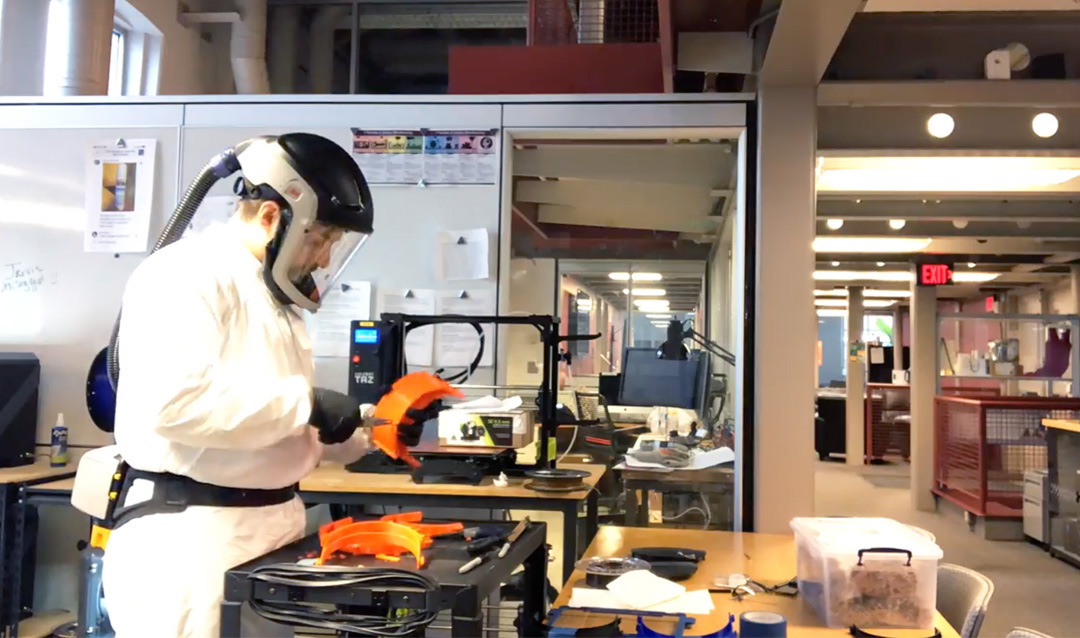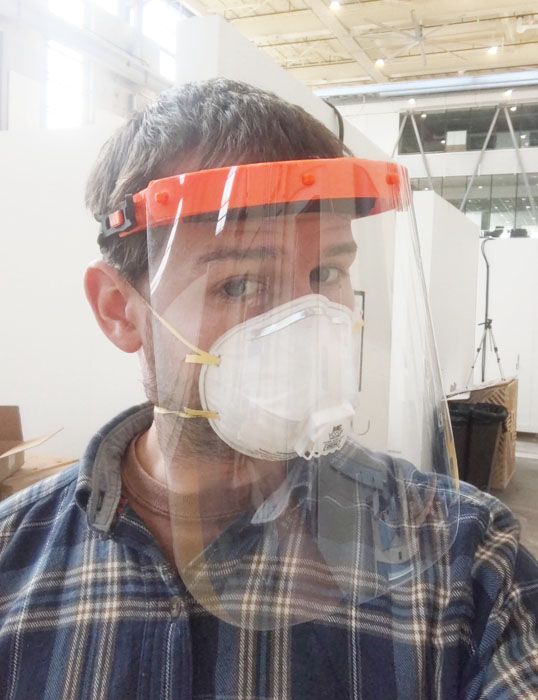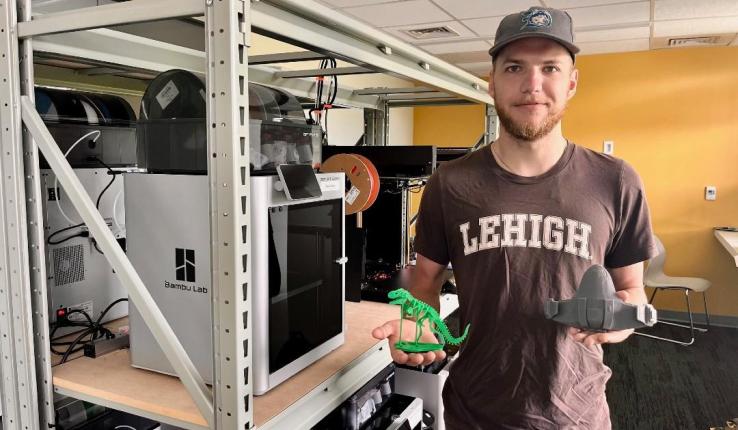In practicing social distancing and taking other measures to help stop the coronavirus spread, Slocum said he has been working in shifts with shop manager Michael Moore ’12 and additive manufacturing coordinator Trevor Verdonik ’13 ’15G to produce the face shields, which are being donated to the hospitals. The 3D-printing and assembling happens at the Wilbur Powerhouse, while the laser-cutting occurs at Mountaintop C3.
“You read your news feed and watch the news at night, and you see these doctors literally putting their lives on the line in order to try to help mitigate the impact of COVID-19, and you're sitting there going, ‘Oh my gosh, I have to help in some way,’” Slocum said. “[Mike and Trevor] jumped on the opportunity because they saw the importance of this, and I was obviously the same way, so it makes us feel really good … to at least try to be doing something with the resources that we have to help protect these hospital employees.”
Slocum, Moore and Verdonik worked with Knoll Inc. in Montgomery County on significant modifications to a face shield design that originally was developed in the Czech Republic. Slocum said the modifications were made to meet the needs of Lehigh’s hospital partners, including the use of neoprene wetsuit materials to make the straps on the shield easier to clean. He said Lehigh also shared its designs and files with colleagues at Lafayette College, who also plan to make shields.
As part of the process, Slocum said, the Lehigh team created prototypes, which were dropped off at the hospitals for review, and adjustments were made based on the hospitals’ feedback. The shields, which can be easily washed, are designed to be used multiple times. Portions of the shields pop together, Slocum added, so they can be easily fixed if damaged.
Lehigh is currently producing the face shields at a rate of 100 per day, Slocum said. He expects Lehigh will be able to produce about 1,500 face shields with the PET material, 3D-printer filament and neoprene wetsuit materials on hand. So far, the face shields have been distributed to LVHN, Good Shepherd, the Lehigh University Health and Wellness Center, Pottsville Surgical Center and Valley Forge Medical Center, with LVHN and Good Shepherd receiving the bulk of the shields to date. He said anyone who wants to donate materials can contact him at bcs3@lehigh.edu.
Slocum said he is also working on prototypes to help LVHN use its existing inventory to deal with the widespread need for N95 respiratory masks. LVHN has a supply of anesthesia masks and Noish 100 respirator cartridges, but no way to connect them. Slocum said he developed 10 prototypes of 3D-printed connectors that could potentially be open sourced for use by other hospitals. He said LVHN will use strict testing protocols to validate their effectiveness.






